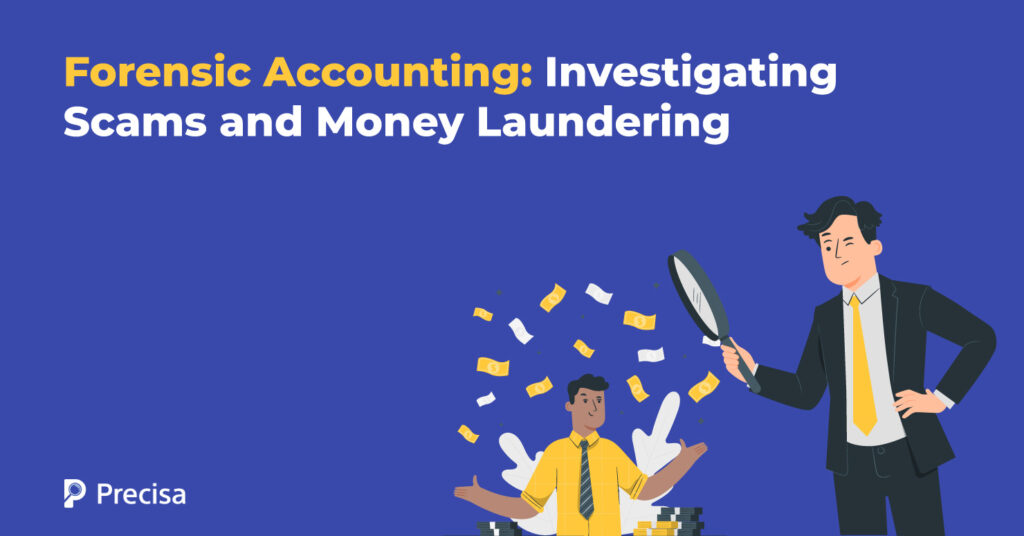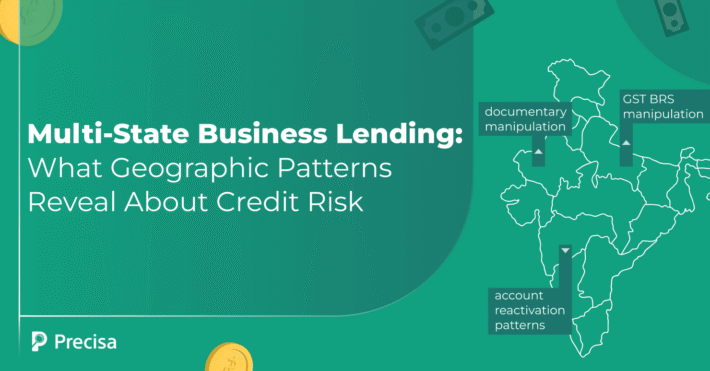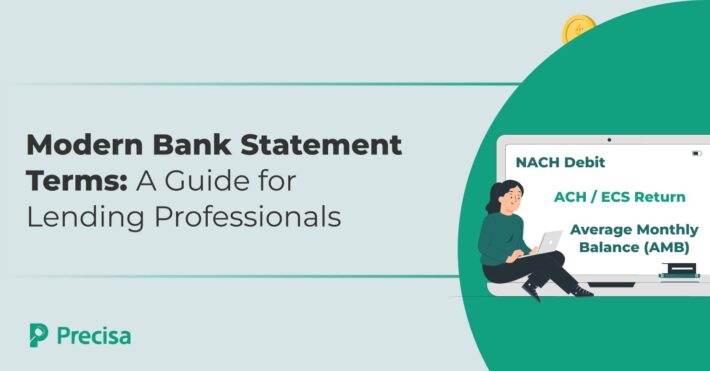Forensic Accounting: Investigating Scams and Money Laundering

In April 2023, the Directorate of Enforcement (ED) uncovered a money laundering scheme linked to the misuse of an app-based token named HPZ. Fraudsters deceived investors with promises of high returns from cryptocurrency mining.
During the investigation, ₹91.6 Crore was frozen across multiple bank and payment gateway accounts.
Forensic accounting, combined with advanced tools like Precisa, is pivotal in uncovering such frauds.
This article explores how forensic accounting helps identify scams and money laundering and how to streamline this process.
The Growing Threat of Financial Crimes

In 2023, approximately $3.1 trillion in illicit funds circulated within the global financial system, including an estimated $346.7 billion in human trafficking, $782.9 billion in drug trafficking activity, and $11.5 billion in terrorist financing.
Additionally, the United Nations Office on Drugs and Crime estimates that $2 trillion is laundered annually.
Criminals employ sophisticated methods to hide the origins of illicit funds, making detection challenging. These activities typically follow three distinct patterns:
- Round-Tripping: Transferring money through transactions across multiple accounts or entities, ultimately returning to the source.
- Unusual Deposits: Frequent large cash deposits, including unexplained third-party cheque deposits, can raise red flags.
- Layering: Moving funds between multiple bank accounts and financial institutions across different jurisdictions.
The growth of digital payment systems and cryptocurrencies has made financial crimes more complex. You need advanced tools to monitor, analyse, and counteract these sophisticated schemes effectively.
The Role of Forensic Accounting
Forensic accounting is a specialised field that combines accounting expertise with investigative skills to detect and address financial irregularities, fraud, and misconduct.
Forensic accountants examine financial records, transactions, and business operations to uncover discrepancies and gather evidence suitable for legal proceedings.
The global forensic accounting market was valued at approximately USD 5.50 billion in 2022 and is projected to reach USD 12.75 billion by 2032, reflecting a compound annual growth rate (CAGR) of 8.8%
Supporting Lending Institutions
Forensic accountants assist lending institutions by identifying and analysing financial anomalies that indicate fraudulent activities.
They collaborate with banks and financial entities to scrutinise complex transactions, assess the legitimacy of financial statements, and ensure compliance with regulatory standards.
Case Study: Britain’s Largest Mortgage Fraud to Date
Between 2003 and 2008, Achilleas Kallakis, a confident trickster, orchestrated one of Britain’s largest mortgage fraud schemes, defrauding banks of over £740 million.
Kallakis, along with his accomplice Alex Williams, posed as a wealthy Mayfair property tycoon backed by reputable firms. Using forged documents, fictitious financial guarantees, and a façade of luxury, he deceived multiple banks into financing high-value property deals.
Allied Irish Bank became the biggest victim, advancing over £700 million and ultimately reporting a £56 million loss on the deals.
Other banks, including the Bank of Scotland, Barclays, and GE Capital, were also targeted. Even Her Majesty’s Revenue and Customs was duped into believing the legitimacy of Kallakis’s offshore empire.
Forensic accountants traced money flows to expose fraudulent activities. Investigators revealed that the financial guarantees from a purported Hong Kong investor, Sun Hung Kai Properties (SHKP), were entirely fabricated.
A German bank, Helaba, conducted background checks on Kallakis and hired a private investigator, exposing the fraudulent empire Kallakis had built.
The Impact of Bank Statement Analysis on Forensic Accounting
Detailed bank statement analysis enables investigators to detect and understand financial irregularities. For example, sudden large investments or spending sprees can be red flags for fraud.
A 70-year-old retired businessman from Houston, Texas, lost his life savings of $256,470 in a cryptocurrency scam. The fraudsters posed as legitimate investment advisors and convinced him to transfer substantial funds from his Wells Fargo account to a fraudulent Bank of America account.
Despite the large transactions labelled as “Buy Crypto Currency” and “Crypto Investment,” no red flags were raised by the banks involved.
However, large sums of transfers and other fraudulent schemes can be identified. Advanced bank statement analysis tools like Precisa can automatically detect irregularities and prevent fraudulent activities effectively.
It enhances accuracy and efficiency by:
- Analysing all transactions and identifying irregularities
- Categorising transactions to assess cash flow pattern
- Examining counterparties in transactions to detect suspicious entities
Precisa supports over 450 banks and 1,000 statement formats, making it easy to combine data from multiple bank accounts. You can export detailed analysis reports to Excel and make decisions quickly.
How Precisa Supports Forensic Accounting
Precisa provides an in-depth review of credit reports and highlights fluctuations in financial activity with a Volatility Score.
- Eliminate the time-consuming manual process of reviewing bank statements and precisely analyse cheque returns automatically.
- Evaluate a borrower’s creditworthiness with the Precisa Score and assess the likelihood of loan repayment.
- Integrate GST data to cross-verify income declarations and detect discrepancies in financial reporting.
Major Benefits for Lending Institutions
The ACFE Occupational Fraud 2024 highlights the risks financial institutions face from occupational fraud. With a median loss of $766,000 from financial statement fraud, it’s clear that robust fraud prevention measures and advanced forensic accounting tools are essential for protecting financial integrity. Here are three major benefits:
1. Minimise Financial Losses from Fraud
Occupational fraud results in global losses exceeding $5 trillion annually, according to the ACFE. Although financial statement fraud is present in only 5% of cases, it causes the highest median losses.
- Asset Misappropriation: Found in 89% of fraud cases, with billing fraud, skimming, and expense reimbursements, which leads to revenue leakage.
- Corruption: Present in 50% of cases, with a median loss of $200,000. It involves bribery, conflicts of interest, and economic extortion.
Precisa enables institutions to:
- Detect inflated revenue figures and fabricated expense claims
- Identify patterns of skimming through advanced analytics
2. Enhance Decision-Making with Data-Driven Insights
The ACFE highlights that 32% of fraud cases stem from inadequate internal controls, emphasising the need for systems to detect fraud.
Precisa enhances decision-making by:
- Analysing huge volumes of bank statements with high accuracy
- Verifying authenticity with file-level checks and penny-drop validation
- Using proprietary algorithms to assess an applicant’s creditworthiness on a scale of 0-1,000
The ACFE report highlights that proactive data analysis can reduce fraud losses and detection times by over 50%.
3. Build Trust with Borrowers and Stakeholders
According to the ACFE report, 43% of fraud detections are driven by tips facilitated through hotlines and proactive monitoring systems. This highlights the importance of tools that promote transparency and accountability.
Precisa strengthens trust by:
- Automating transaction reviews, ensuring unbiased assessments
- Accessing cash flow patterns, integrating GST data for tax compliance, and verifying financial authenticity
Key Takeaway
As financial crimes have become sophisticated, adopting advanced tools is essential to detect and prevent fraud.
Precisa combines automated online bank statement analysis, fraud detection, and creditworthiness evaluation. With features like the Precisa Score, transaction categorisation, and GST integration, it provides a secure and reliable assessment to combat financial crimes.
The platform simplifies financial analysis, minimises errors, and ensures informed decision-making.
Explore Precisa today to safeguard your institution against financial crimes.



